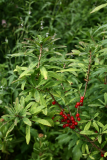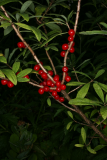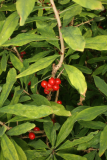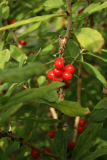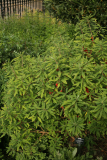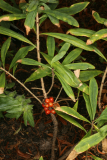Additional notes (click to expand)
Horticulture
Daphnes have a short lifespan of 15 -20 years. Root readily from cuttings taken in late spring or summer. When potting on (to help plants through their first winter) use a layer of grit around the rooted plug and pot into a 1 litre pot to allow roots to grow throiugh the grit into a free-draining compost.
Kimberley M. (2014) Horticulture Week 24/01/14 p.22
They have a delicate, long, straggly root system with few feeder roots at the ends, so they have a low tolerance for drought, waterlogging or being moved. Soil must be well drained and moisture retentive.
Kimberley M. (2014) Horticulture Week 24/01/14 p.22
Nomenclature
The correct botanical name is Daphne mezereum var. rubra (Laurel Emms. RHS Horticultural Advisor).
Toxicity
All parts of the plant are toxic to humans and animals due to alkaloids and saponins. The plant can irritate skin and may cause skin allergies.
Professor Anthony Dayan, 2022
Geographical distribution
- Asia-Temperate, Western Asia, Iran
Daphne mezereum L. var. rubra
Family: THYMELAEACEAEGenus: Daphne
Species: mezereum L.
Variety: rubra
Common names: Red Mezereon
Pharmacopoeia Londinensis name: Mezereon
Distribution summary: Eurasia
Habit: Shrub
Hardiness: H5 - Hardy; cold winter
Habitat: Rich deciduous woodlands, moist, calcareous soils to 1300m
Garden status: Not currently grown
Flowering months: February, March
Reason for growing: Medicinal, toxic
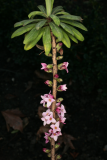
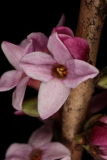
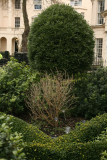
.jpg)
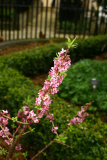
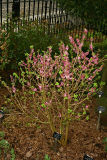
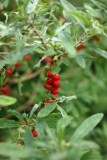
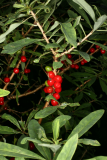
1.jpg)
.jpg)
.jpg)
1.jpg)
.jpg)
